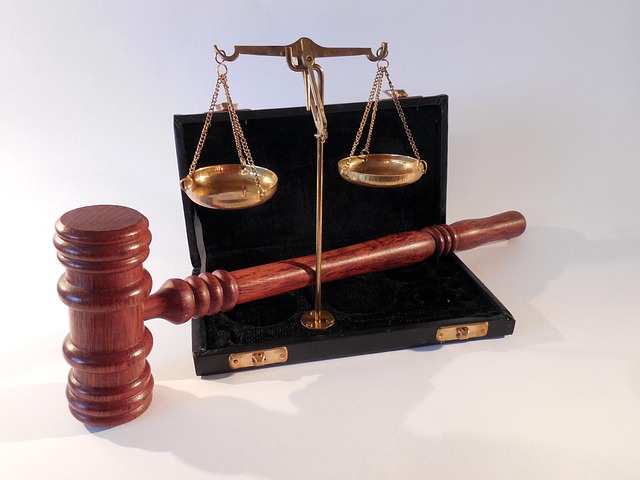Understanding consumer protection laws is crucial for businesses and individuals to protect their rights against unfair practices. When regulatory decisions seem unjust, consumers can gather evidence, consult legal experts specializing in consumer protection and white-collar crimes, review contracts, and consider options like mediation or jury trials. Skilled legal representation guides clients through complex regulations and potential penalties, aiming for dismissals or favorable outcomes. Challenging Regulatory Agency Decisions effectively requires strategic navigation, focusing on accurate interpretation of regulations, thorough evidence review, and compelling arguments.
Consumer protection suits play a vital role in ensuring businesses uphold ethical standards and safeguard consumer rights. In this comprehensive guide, we demystify consumer protection laws and your entitlements under them. Learn about the grounds that justify challenging regulatory agency decisions, emphasizing the importance of legal representation in such cases. Discover effective strategies to navigate consumer protection lawsuits, including key steps on how to challenge regulatory agency decisions, ensuring you’re equipped with the knowledge to protect your interests.
- Understanding Consumer Protection Laws and Your Rights
- Grounds for Challenging Regulatory Agency Decisions
- The Role of Legal Representation in Consumer Suits
- Strategies to Effectively Navigate Consumer Protection Cases
Understanding Consumer Protection Laws and Your Rights

Understanding consumer protection laws is crucial for both corporate and individual clients, as it equips them with knowledge to assert their rights in various transactions. These laws are designed to safeguard consumers from unfair business practices, ensuring they receive quality products or services. They cover a wide range of issues, including product safety, truth in advertising, pricing transparency, and debt collection fairness. By familiarizing themselves with these regulations, consumers can actively protect themselves against potential fraud or exploitation.
When facing decisions from regulatory agencies that they believe are unfair or incorrect, consumers have options. One significant step is to gather evidence and consult legal experts who specialize in consumer protection and white-collar crimes. This process involves reviewing contracts, documentation, and any relevant communications to build a solid case. If the dispute remains unresolved, individuals may choose to engage in mediation or even pursue jury trials as a means of How to Challenge Regulatory Agency Decisions and secure justice for perceived wrongs.
Grounds for Challenging Regulatory Agency Decisions

When it comes to Consumer Protection Suits, understanding how to challenge Regulatory Agency Decisions is a crucial step for both corporate and individual clients navigating high-stakes cases. There are several legitimate grounds upon which one can contest these decisions, ensuring fairness and accountability in the regulatory process.
Key arguments often center around procedural errors, such as inadequate notice or hearing processes, and substantive disagreements with the agency’s interpretation of laws or evidence. In complex cases, legal experts may also leverage constitutional challenges, asserting rights to due process or equal protection. These strategies are particularly relevant in jury trials, where a thorough examination of the regulatory decision can sway public opinion and lead to favorable outcomes for plaintiffs or defendants alike.
The Role of Legal Representation in Consumer Suits

In consumer protection suits, legal representation plays a pivotal role in safeguarding rights and ensuring justice. When faced with complex regulations and potential fines, having an experienced attorney is invaluable. They navigate the intricate legal landscape, helping consumers challenge regulatory agency decisions effectively. Through strategic advocacy, these lawyers can secure a complete dismissal of all charges or achieve winning challenging defense verdicts.
With their expertise, they guide clients through every step, from pre-trial preparations to jury trials. Their primary objective is to protect consumer interests by presenting compelling arguments and evidence. This not only ensures fair outcomes but also serves as a deterrent for businesses engaging in unethical practices. A robust legal representation empowers consumers to stand up against powerful entities, ultimately fostering a more accountable marketplace.
Strategies to Effectively Navigate Consumer Protection Cases

Navigating consumer protection cases requires a strategic approach to ensure the best possible outcome. One key strategy is understanding and effectively challenging regulatory agency decisions. These agencies, though crucial in protecting consumers, can sometimes make errors or issue rulings that are not in line with the facts. Legal teams should thoroughly review evidence, interpret regulations accurately, and prepare compelling arguments to counter the agency’s decision. This involves a deep dive into case law, industry standards, and consumer behavior patterns to build a robust defense.
For complex cases, involving allegations of white-collar crime or general criminal defense, it is essential to consider all potential avenues for appeal. The goal isn’t merely to avoid punishment but also to achieve a complete dismissal of all charges. Skilled attorneys can leverage loopholes, procedural errors, or lack of evidence to mount a strong challenge. This strategic navigation demands expertise in both consumer law and criminal defense, ensuring the case is handled with the utmost care and precision.
Consumer protection suits play a vital role in ensuring businesses uphold their responsibilities and protect the rights of individuals. By understanding your rights under consumer protection laws, knowing how to challenge regulatory agency decisions, and employing strategic legal representation, consumers can effectively navigate these cases. Armed with this knowledge, folks can not only defend their interests but also contribute to a more fair and bustling marketplace for all. To achieve successful outcomes, remember that seeking professional guidance is key when considering How to Challenge Regulatory Agency Decisions.






